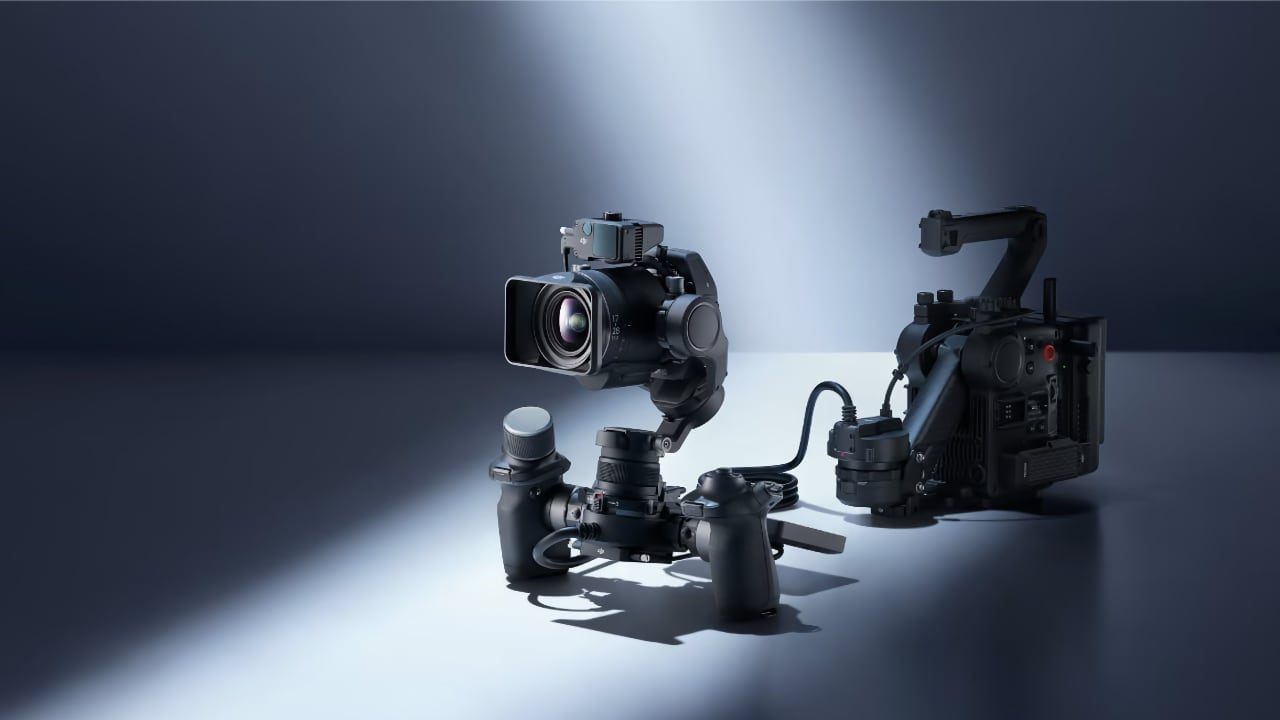
With a weight reduction to just 1.8kg, the ability to separate the Ronin 4D Flex gimbal camera from the main body gives a whole new range of interesting options, while the company has also released the DL PZ 17-28mm T3.0 lens.
DJI has a new version of its Ronin 4D camera platform, the Ronin 4D Flex, which allows users to separate the actual X9 gimbal camera head from the main body to produce a lighter weight capture unit than ever.
This is all made possible by a 2m ultra-thin coaxial cable supporting lossless transmission of up to 8K that connects the gimbal unit to the main body. This allows high-speed signals from the camera sensor to reach the body with zero latency, as well as control and monitoring signals to be delivered in real-time. This solid cable connection gives the 4D Flex a huge degree of flexibility of camera positions, no matter how limited the space, as well as be used as an ultra-small cinematic-grade remote head.
The handheld weight of the X9 is reduced to just 1.8kg, allowing solo operators to shoot for longer in more situations. Native compatibility with Ronin 4D’s Hand Grips and the Main Monitor provides cinematographers with a whole set of solutions, including cinematic imaging, 3-axis stabilization, LiDAR focusing, and professional monitoring and control.
Switching from one mode to the other is billed as ‘fast’ and is also a happily tool-less transition. For static shots, the standard Pan Axis Quick-Lock with accessories pushes the limits of the gimbal’s payload, supporting telephoto, cinema zoom, and anamorphic lenses to give users wider freedom of choice for the shot they envision.
The Ronin 4D Flex is available as of right now for £829/€949 and comes with one Pan Axis Quick-Lock, two Ronin 4D Hand Grip Adapters, and 2 Hand Grip Adapter Cables.
DJI’s first cinema-grade zoom
The DL PZ 17-28mm T3.0 lens, meanwhile, adds even more to DJI’s ever-expanding range of capabilities and is the company’s first-ever cinema-grade zoom lens, allowing for 100% native focus and zoom for “a new level of image quality” for the Ronin 4D system. Constructed of aluminium magnesium alloy, it weighs approximately 520g, providing a size-to-weight ratio that the company reckons is a perfect match for the X9 gimbal camera. The internal servo zoom motor delivers a smooth and reliable zoom that eliminates the need for an external focus motor or lens calibration and it adjusts zoom without requiring re-balancing.
It’s also more expensive than the camera its built for, coming in at £1539 / €1759.
And last but not least, an activation license key for the Apple ProRes RAW codec on Ronin 4D is now available for purchase at the DJI Store, making it even easier to integrate Ronin 4D footage into cinema productions. That’s going to set you back £999/€1019.
Tags: Production


Comments